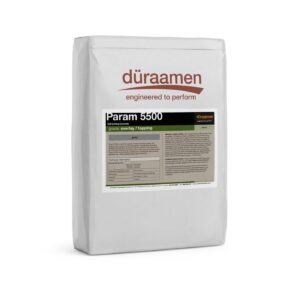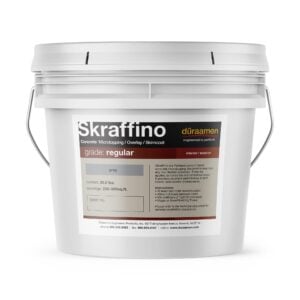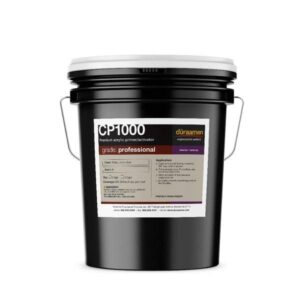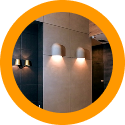Choosing the right flooring for your commercial, industrial, or residential space is a significant decision that can impact aesthetics, functionality, and maintenance requirements. Among the many flooring options available, epoxy flooring has gained popularity for its unique combination of durability, customization, and versatility. To make an informed decision, it’s essential to compare epoxy flooring with other common flooring materials. In this comprehensive guide, we’ll delve into the pros and cons of epoxy flooring compared to various flooring options, helping you determine the best choice for your specific needs.
Understanding Epoxy Flooring
Before we delve into the detailed comparisons, let’s establish a clear understanding of epoxy flooring and what sets it apart:
Epoxy flooring is a robust, multi-layered system consisting of epoxy resin and hardeners. This mixture is applied over a concrete substrate to create a seamless, durable, and attractive surface. Epoxy coatings are renowned for their chemical resistance, longevity, and customization options. They are available in various colors, patterns, and finishes, making them suitable for a wide range of applications, including industrial use, commercial spaces, and even residential areas.
Now, let’s explore how epoxy flooring stacks up against different types of flooring materials.
Epoxy vs. Concrete Floors
Pros of Epoxy Flooring:
Durability: Epoxy coatings enhance the longevity of concrete floors, making them more resistant to wear and tear.
Chemical Resistance: Epoxy flooring can withstand chemical spills, a crucial benefit for industrial settings.
Smooth Surface: Epoxy creates a smooth, seamless surface that is easy to clean and maintain.
Cons of Epoxy Flooring:
Installation Costs: The initial installation cost of epoxy flooring can be higher than that of plain concrete.
Curing Time: Epoxy coatings require curing time, which can result in downtime during the installation process.
Conclusion: Epoxy flooring is an excellent choice to upgrade and enhance plain concrete surfaces. It offers added durability, chemical resistance, and ease of maintenance. While installation costs can be higher, the long-term benefits often outweigh the initial investment.
Epoxy vs. Tile Flooring
Pros of Epoxy Flooring:
Durability: Epoxy floors are highly durable and can withstand heavy machinery and high foot traffic.
Customization: Epoxy coatings come in various colors and can be customized to create a unique look.
Anti-Slip Coating: Anti-slip additives can be incorporated into epoxy coatings for added safety.
Cons of Epoxy Flooring:
Application Complexity: Installing epoxy flooring can be more complex than laying tiles.
Chemical Reaction: Improper installation can result in a failed chemical reaction, affecting the final finish.
Conclusion: Epoxy flooring provides excellent durability and customization options, making it a robust choice for high-traffic areas. However, professional installation is crucial to ensure a successful outcome.
Epoxy vs. Vinyl Flooring
Pros of Epoxy Flooring:
Durability: Epoxy flooring is exceptionally durable and can outlast many types of vinyl flooring.
Customization: Epoxy coatings offer a variety of colors and finishes for a modern look.
Chemical Resistance: Epoxy is resistant to chemicals, making it suitable for commercial purposes.
Cons of Epoxy Flooring:
Installation Complexity: Epoxy installation may require the expertise of professional installers.
Direct Sunlight: Prolonged exposure to direct sunlight can cause epoxy to yellow over time.
Conclusion: Epoxy flooring is a robust alternative to vinyl, offering enhanced durability and customization options. However, it may require professional installation and protection from direct sunlight.
Epoxy vs. Laminate Flooring
Pros of Epoxy Flooring:
Durability: Epoxy is more durable and resistant to moisture compared to laminate flooring.
Low Maintenance: Epoxy flooring is easy to clean and requires minimal maintenance.
Customization: Epoxy coatings offer a variety of colors and can mimic the look of polished concrete.
Cons of Epoxy Flooring:
Application Complexity: Epoxy installation may require professional epoxy flooring installers.
Curing Process: Epoxy coatings require curing time, affecting the installation timeline.
Conclusion: Epoxy flooring is an excellent alternative to laminate, offering enhanced durability and low maintenance requirements. While professional installation is recommended, the long-term benefits justify the investment.
Epoxy vs. Hardwood Flooring
Pros of Epoxy Flooring:
Durability: Epoxy is more resistant to moisture, scratches, and dents compared to hardwood flooring.
Chemical Resistance: Epoxy flooring can withstand chemical spills, making it suitable for commercial use.
Customization: Epoxy coatings offer a variety of colors and finishes for a modern look.
Cons of Epoxy Flooring:
Installation Complexity: Epoxy installation may require professional epoxy flooring installers.
Lack of Natural Look: While epoxy can mimic the appearance of wood, it does not replicate the warmth and feel of real hardwood.
Conclusion: Epoxy flooring provides superior durability and chemical resistance compared to hardwood. It offers a modern, customizable look but lacks the natural feel of wood.
Epoxy vs. Carpet Flooring
Pros of Epoxy Flooring:
Durability: Epoxy flooring is more durable and stain-resistant compared to carpet.
Low Maintenance: Epoxy is easy to clean and does not trap allergens like carpet.
Customization: Epoxy coatings offer a variety of colors and designs.
Cons of Epoxy Flooring:
Application Complexity: Epoxy installation may require professional epoxy flooring installers.
Comfort: Epoxy is not as soft or comfortable underfoot as carpet.
Conclusion: Epoxy flooring is a practical alternative to carpet, offering durability, low maintenance, and customization options. It is an ideal choice for high-traffic areas but may not provide the same level of comfort.
Epoxy vs. Ceramic Tile Flooring
Pros of Epoxy Flooring:
Durability: Epoxy flooring is highly durable and can withstand heavy foot traffic.
Customization: Epoxy coatings offer a variety of colors and can mimic the appearance of ceramic tiles.
Chemical Resistance: Epoxy is resistant to chemicals, making it suitable for commercial settings.
Cons of Epoxy Flooring:
Application Complexity: Epoxy installation may require professional epoxy flooring installers.
Grout Lines: Unlike ceramic tiles, epoxy coatings create a seamless surface without grout lines.
Conclusion: Epoxy flooring provides excellent durability and customization options, making it a practical alternative to ceramic tiles. It eliminates grout lines for easier maintenance.
Epoxy vs. Polished Concrete Flooring
Pros of Epoxy Flooring:
Customization: Epoxy coatings offer a wide range of colors and designs for a modern look.
Chemical Resistance: Epoxy is highly resistant to chemicals, making it ideal for industrial floors.
Durability: Epoxy enhances the durability of concrete floors, extending their lifespan.
Cons of Epoxy Flooring:
Installation Complexity: Epoxy installation may require professional epoxy flooring installers.
Curing Process: Epoxy coatings require curing time, affecting the installation timeline.
Conclusion: Epoxy flooring is an excellent choice for enhancing the aesthetics and durability of concrete floors. While installation may require professional expertise, the results are long-lasting and attractive. This is a great option if you’re looking for something durable. You can also use epoxy coating on your concrete floor to tet a polished concrete look.
Epoxy vs. Linoleum Flooring
Pros of Epoxy Flooring:
Durability: Epoxy flooring is more durable and resistant to moisture compared to linoleum.
Customization: Epoxy coatings offer a variety of colors and designs.
Chemical Resistance: Epoxy is highly resistant to chemicals, making it ideal for commercial settings.
Cons of Epoxy Flooring:
Installation Complexity: Epoxy installation may require professional epoxy flooring installers.
Curing Time: Epoxy coatings require curing time, affecting the installation timeline.
Conclusion: Epoxy flooring offers enhanced durability and chemical resistance compared to linoleum. It is a cost-effective and customizable alternative for commercial spaces. It stands the test of time, especially in a commercial space.
In this comprehensive guide, we’ve explored the advantages and disadvantages of epoxy flooring compared to various flooring options. The right choice ultimately depends on your specific needs, budget, and aesthetic preferences. When considering epoxy flooring, it’s essential to work with professional epoxy flooring installers who have the expertise to ensure a successful installation. Make an informed decision to transform your space with a flooring solution that meets your unique requirements and delivers long-lasting value.






